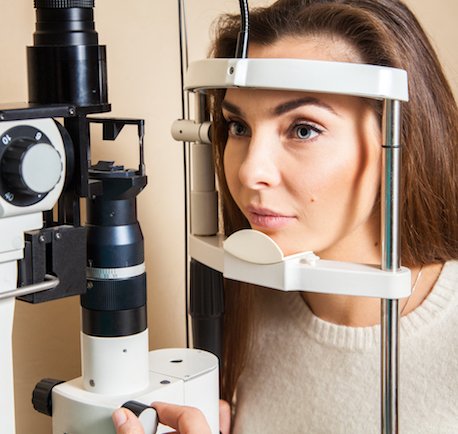

Dr. Edwin M. Schottenstein and his team are here to provide all the information you need to know about overall eye care and health on the Upper West Side and surrounding neighborhoods of NYC. Our goal is to ensure you can make an informed decision based on our expert diagnosis and treatment plan, and we know that can only be achieved through trust and professional knowledge.
We understand that retinal health is just one of the various components to strong, clear vision, and to help with the many queries we answer every day, we have listed a few frequently asked questions below for your convenience. We have also included a section on retinal health with diabetes, as patients with this condition are at higher risk for eye diseases.
The retina is a light-sensitive layer of tissue located in the third and inner coat of the eye. When light hits the retina, a cascade of chemical and electrical signals are sent across nerve impulses that link to visual centers in the brain. The retina is also where rods and cones are found, which are responsible for vision at low light levels and higher light levels, respectively.
Age-related macular degeneration (AMD) is the leading cause of blindness in patients 65 and older. Your macula is the area of the retina that assists with activities such as driving and reading. AMD occurs when the retina degrades, causing a progressive loss of vision. It is important to schedule regular visits with your ophthalmologist to detect macular degeneration early on and prevent permanent blindness.
Not everyone will experience macular degeneration, but total and guaranteed prevention for those susceptible is simply not possible. However, there are steps that can be taken to significantly decrease the odds of developing AMD, including eating leafy green vegetables, fish, fruit, and nuts, taking multivitamins and mineral supplements, exercising regularly, reducing refined carbohydrate intake, keeping blood pressure and cholesterol levels under control, wearing sunglasses outdoors, and attending regular eye exams.
This complication arises when diabetes weakens the blood vessels that flow to the retina, causing them to leak, swell, or develop thin branches, leading to blurred or cloudy vision, blind spots, and eventually vision loss.
Injections, laser treatment, and surgery are all available for patients with diabetic retinopathy. As with most diseases and conditions, the earlier they are discovered and diagnosed, the better the results will be down the road.
To reduce the risk of diabetic retinopathy, follow a prescribed diabetic diet and continue any medications and exercise regimens, avoid alcohol and cigarettes, and maintain cholesterol and blood pressure levels. As always, regular eye exams are also a must.
If you have any other questions or concerns, or you would like to schedule an appointment to deal with your retinal health issues, please do not hesitate to call us directly at 212-874-2300. One of our friendly staff members will assist you in any way they can. We look forward to seeing you see better soon!